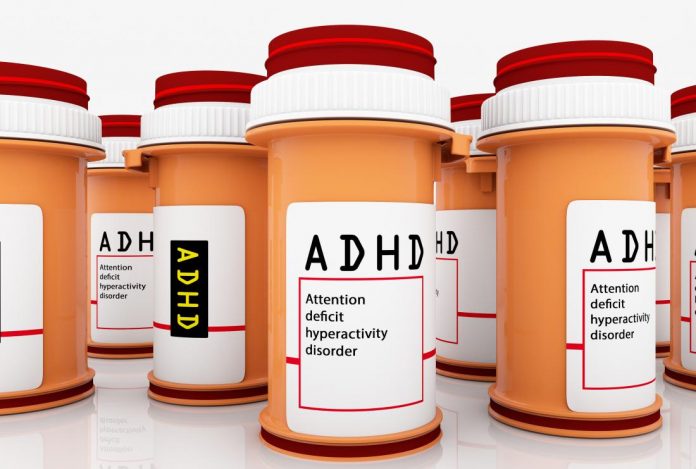What’s the Right ADHD Medication for Your Child?
When Wendy’s pediatrician first suggested she have her son tested for ADHD (attention deficit hyperactivity disorder), the Florida mom was skeptical. He was 7, and he didn’t bounce off the walls or misbehave like other children she knew with the disorder.
But his teachers were concerned about his inability to focus in school. And he was so forgetful that if she asked him to go brush his teeth, he would often lose track of what he was supposed to do by the time he got to the bathroom.
A neuropsychologist did diagnose Wendy’s son with ADHD. (It’s an umbrella term that covers all cases, even those that don’t include hyperactivity). But when the doctor suggested medicine, she put her foot down. “I was adamantly opposed to putting my child on medications and resisted it for months,” she says. “I didn’t want him to think life’s problems were solved with something out of a bottle.”
Doctors hear this concern every day, says Edward Hallowell, MD, co-author of Delivered From Distraction. “Most parents don’t want to give their children medication at first, but the research and the facts are very reassuring.” When used properly, medication is safe and effective. “It can dramatically help children 80% of the time,” he says.
After her doctor explained the risks and potential rewards to her, Wendy agreed to give medications a try — and she says it has changed her son’s life for the better.
ADHD Drug Options
There’s no set formula for which medication works best for which child. It’s a process of trial and error.
Mark Stein, PhD, an ADHD specialist at the Center for Child Health, Behavior and Development at Seattle Children’s Hospital, says, “Most of these medications have been around for decades, and we know a lot about them, but one thing we don’t know is why some children react better to one formulation than another.”
Most often, the doctor will start your child on a low dose of a stimulant, such as an amphetamine (Adderall, Adderall XR, Dexedrine) or methylphenidate (Concerta, Jornay PM, Metadate, or Ritalin). These drugs lessen the can’t-sit-still and on-a-whim behaviors. And they improve a child’s ability to concentrate and learn. While it may sound backward to stimulate a brain that already has trouble settling down, Hallowell explains that the drugs actually stimulate or turn on the brain’s “brakes,” pulling everything into sharper focus. They inhibit impulsiveness.
Suggested
One major decision is whether to use a short- or long-lasting pill. Depending on the prescription, the effects of a medication can last from as little as 4 hours to as long as 12. Your doctor will base the dose on your child’s age, the severity of symptoms, and their specific areas of trouble.
“For an adolescent who has a lot of homework and may be driving, you would give a long-lasting dose,” Stein says. “But for a younger child who just needs to focus during the school day but then needs to wind down and go to sleep early, you may give one that lasts only a few hours.”
If your child doesn’t react well to stimulants, the FDA has approved different kinds of drugs, too. Atomoxetine (Strattera), as well as clonidine (Kapvay) and guanfacine (Intuniv), help make connections in the brain. They may ease restless, impulsive tendencies and help kids pay attention, make decisions, and remember things.
And though they’re not specifically approved for it, some antidepressants can take the edge off some symptoms of ADHD. For children who have another disorder, such as anxiety or insomnia, along with ADHD, an antidepressant may help with both conditions.
Watch for Side Effects
During the trial period, you and your doctor should keep an eye on your child to see if their symptoms improve and, just as importantly, if they have any trouble. As Wendy found out, it can take patience to get the prescription just right.
“The first medication he tried was a disaster,” she explains. “It made him crash at night, and he would say he felt worthless.” After a week, his doctor switched him to a new drug, and the difference was like night and day, Wendy says. “Within a day or two, he felt so much better, and he was able to follow directions and focus.”
It’s not surprising that Wendy’s son had sleep issues with his first prescription. Problems such as the inability to conk out at night or feeling totally wiped out are some of the most common side effects of stimulants used to treat ADHD, Stein says. He points out that these problems usually work themselves out over time. “But if it doesn’t get better in a week and it’s taking your child more than an hour to fall asleep at night, talk to your doctor about changing the prescription,” he says.
Suggested
Another common side effect of stimulants is a loss of appetite. “Make sure to have a lot of nutritional snacks available for later in the day, when the medication wears off,” Stein says. But if your child starts losing weight, that’s a red flag to switch to a different drug.
More serious side effects could include personality changes that don’t go away in a few days, like feeling depressed or acting “zombielike.” In some cases, kids might even hallucinate or develop tics.
If you notice these problems — or anything else that alarms you — tell the doctor right away and stop the medication. Since the drugs leave the body in a few hours, the side effects should go away as soon as your child stops taking it. In most cases, the doctor will change the dosage or try another medication.
An Ongoing Process
Medicine can lead to remarkable changes in your child’s ability to focus in school, follow directions at home, and get along with others. But it works best with behavioral strategies.
“Medication doesn’t cure ADHD. It reduces the symptoms,” says Stein. “And it always wears off, so it’s important for the child’s parents and teachers to work with him on behavioral skills, too.” He also recommends re-evaluating your child’s treatment once a year, since symptoms can change over time.
Though Wendy initially resisted giving her son the medications, she says it was one of the best decisions she ever made. “His self-esteem has improved dramatically,” she says. “I’m so glad we reached out to a professional who was trained in ADHD and was able to find the right treatment for him. It’s changed not only his life, but the entire family is happier now.”
































